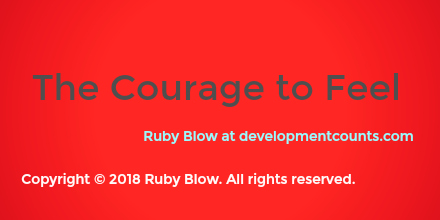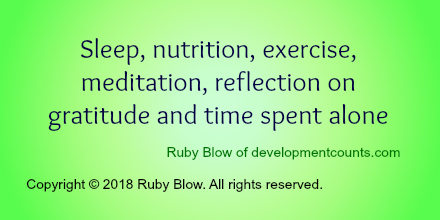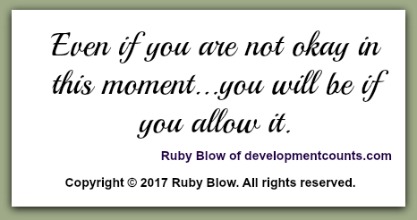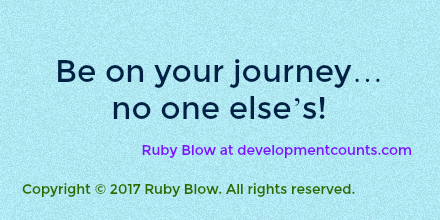There are a few simple truths behind most psychological pain…not wanting what “is” to be true or real… wishing that something that did happen… did not happen.
It can be very difficult to dislodge a person’s beliefs when they are fixated on a slight, an injury, a loss or an attack…whether it be psychological or emotional.
As human beings, we tend to generate meaning as to why an event occurred.
Why someone treated us a particular way (like not getting a promotion) or even why a devastating life event transpired (the death of a loved one).
So we all cultivate stories. It helps us assign meaning to life and events. It helps us retain and group memories. It helps us adapt and apply what we’ve learned in different circumstances.
In life people swap stories as a way to get to know one another.
People Tell These Stories
- birth stories;
- death/loss stories;
- divorce stories;
- business stories;
- illness stories;
- job stories;
- career stories (there is a difference);
- injury stories;
- friendship stories;
- accident stories;
- love stories;
- heartbreak stories;
- religious/spiritual stories;
- and money stories to name a few.
It is important to note that what a person’s story tells you about them is what they are focused on and what they choose to take away. We should not hold these stories up as facts.
Many beginning therapists voice concerns about whether or not a client is telling them the “truth,” even sometimes acting as investigators instead of as companions on the journey. I think Oriah Mountain Dreamer says it best in her poem “The Invitation”.
“It doesn’t interest me if the story you are telling me is true.
I want to know if you can disappoint another to be true to yourself;
if you can bear the accusation of betrayal and not betray your own soul;
if you can be faithless and therefore trustworthy.”
By “faithless” she means to go against a promise you previously made because it is no longer true. Don’t be more loyal to a previous sentiment than you are to the truth within your soul.
Our identity is closely defined by our stories….when we release those old scripts to become or allow something new, even though it can be scary, it is one of the most reliable paths to well being.
While people need to and should share their stories…I prefer it that people not bond over their trauma stories…also known as trauma bonding…“this bad thing happened to me…what bad things happened to you?” Trauma bonds are a script that people continuously live into and experience.
In other words we believe the “bad” thing is going to happen and we cultivate all of the circumstances and beliefs to experience the “bad” things again and again. Whether in reality or through our retelling of the story.
Getting to and maintaining a positive frame of mind involves a three part process:
Step 1: Accept what “is”
Accept what “is”…come out of the old scripts and into a new story that best defines what you want to experience moving forward.
- When we accept what is…this is not the same as liking what is…it simply means no longer engaging in psychological warfare against reality.
- You are not the worst story that you are telling yourself about you… nor are you the worst story that someone else is saying about you.
Step 2: Build your well – or reservoir – of “wellness,”
Building a well – or reservoir- of “wellness,” to draw upon as you expend energy (physical wellness, emotional wellness, spiritual wellness, psychological wellness, social wellness ) is essential to feeling full and fulfilled.
When we source wellness into ourselves, we engage in activities, set limits and have experiences that help us alleviate stress and bolster actually feeling good. Whether it be:
- adequate rest/sleep;
- exercise;
- sex;
- drinking water;
- reading;
- watching movies;
- receiving massage;
- attending religious services;
- spending time with friends;
- eating nutritious meals;
- spending time with loved ones;
- taking vacations/time off or having time to oneself.
It is vital that we approach life from a place of satiation when it comes to our essential needs. Otherwise we make choices and decisions from a place of lack or fear.
Step 3: Focus on gratitude (be thankful)
Focus on gratitude (be thankful) (think more thoughts about what you do have versus what you don’t have)
- Gratitude expands our conscious awareness of what is right in our world.
- Expressing gratitude is more than saying thank you and involves more than writing what you are grateful for in a journal. It involves seeking to balance out all of our experiences of the difficult/challenging or negative with the possibilities/strengths and positives.
- When we do this we have a better chance of feeling supported and remaining intact in our identities. After all, one of the first things we will change to avoid psychological or emotional pain is the truth of who we are or what we want or need.
- If you don’t retain yourself, who gets to enjoy the happiness that is cultivated from this process?
Copyright © 2015 Ruby Blow. All rights reserved.
Share your thoughts on Linkedin, Facebook, Twitter





